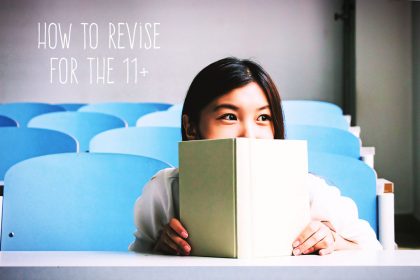Five ways to revise more effectively for science subjects
Science subjects have a reputation for being challenging, whether you are studying for GCSEs, A Levels or beyond.
I’m Claire CK and I’ve been teaching and tutoring chemistry for 20 years. Read on for my top five ways to feel more in control of your revision and avoid making the most common mistakes I see when students revise for science exams.
1) Make a realistic timetable
Planning and preparation are key when it comes to effective revision for any subject – especially a subject like science when there is so much to cover. While having no plan is clearly a problem, you should also be careful that the plans you make are realistic and achievable – and don’t take you longer to make than the actual revision!
Start with a long term plan – lay out the number of weeks until the exam, and allocate general topics and activities for each week. As well as time to cover each topic, leave space nearer the exam for practising whole papers. By planning right up to the exam, you can feel more relaxed about the time you have left.
You can then make a more detailed plan at the start of each week. Look at the time you have available and don’t forget to block out time when you don’t want to revise – time to relax, socialise and exercise are also important and by timetabling these you give yourself breaks to look forward to.
For each block of time you allocate to revision, be specific about what you will do and when you will do it. For example, instead of simply saying ‘on Tuesday I’ll do an hour of chemistry’, you could try ‘at 6pm on Tuesday I’ll do 30 minutes using flashcards and retrieval practice, and 30 minutes of practice questions on organic chemistry’.
2) Use regular retrieval practice
A lot of students underestimate the sheer volume of content that just needs to be learned in science. Students typically learn more new words in a science GCSE or A Level than they do in a language, and no one would expect to walk into a French exam without having spent a long time going over vocabulary!
To get confident with definitions, formulae, equations and diagrams takes time and effort – but it is effort that is very well rewarded when it comes to the day of the exam. Retrieval practice is a highly effective strategy of bringing information to the front of our minds, enhancing connections in the brain and making it easier to retrieve information in the future. It is a great way to prepare for science exams, but many students don’t know how to use it well.
Retrieval practice is separate from the practice of past papers and exams – these activities practice the application of knowledge, not its retrieval. To do retrieval practice can be as simple as taking a blank piece of paper and writing down everything you can recall about a particular topic. Alternatively, you can use flashcards or short, simple quizzes. The most important things to remember are:
- Do not look at your notes until after you’ve tried to retrieve the information (this is always difficult at first)
- It doesn’t matter if you get things wrong or forget things – so long as you check afterwards. The effort of recall is what is most important.
- It should be ‘low-stakes’ testing. Don’t focus on a score out of ten or any other grading system. Just focus on anything you missed so you can try again later.
3) Spend some time on synoptic revision
Unlike some other subjects, sciences are very synoptic. This means that many topics link together from the different parts of the syllabus, and it’s often hard to understand one topic well without understanding many other concepts (this also happens between sciences). This is one of the reasons science can seem so difficult, and is something you should take into account when revising.
Many students choose to revise each topic separately, as this is how it is taught in schools and covered in revision guides. By only doing questions for each topic separately, however, it can be a bit of shock to move onto a real exam paper where a single question might involve ideas from several different parts of the syllabus.
Before you get to exam practice, therefore, give your brain some practice in thinking synoptically. One way you can do this is by mixing up your flashcards or doing random quizzes. You can also try mind mapping different parts of the course to see which ideas are linked. For connecting complex science topics and improving recall, consider using online mind mapping solutions to visually organise concepts, link information, and create interactive revision resources.
4) Do exam papers under exam conditions
It’s good to use past exam questions to get more familiar with the application and the types of questions they could ask you for different topics. However, you also need to allow time in your revision to practice the ‘real thing’.
Exam practice means you are practising the real life situation of sitting in a hall, with no notes, answering questions under timed conditions with no distractions. This is one of the reasons schools keep giving you mock exams – it’s not just to test your progress but also to give you a better idea of what the real exam will be like.
It’s probably not possible for you to set up a tiny desk in a big echoey sports hall, but you can and should make sure that you take exam practice seriously. Try to sit the whole paper under timed conditions. Remove all sources of distraction and make sure you have any extra information you need such as a periodic table or data sheet.
If you can, print the exam out – if you can’t, use a screen to look at the questions but write your answers on paper (if this is your normal exam arrangement). If you get extra time or other access arrangements, make sure you factor this in to your practice as well.
5) Make better use of feedback
So you’ve spent time on retrieval practice, and you know your equations and definitions. You’ve left time to practice under exam conditions – is it enough? It’s a great foundation for revision, but if you really want to aim high then you should be allowing time in your revision for feedback activities as well.
On obvious way to seek feedback is to use the mark scheme after you’ve been through a practice paper. But how well are you using the mark scheme? Many students are too generous when marking their own work – look really carefully to see if the words you used are the same as those on the mark scheme, and look for other useful prompts that can tell you where you can improve, for example:
- ‘Reject’ or ‘do not allow’ – this shows you where you are using a term that is incorrect, and will lose the mark even if other parts of your answer are okay.
- ‘Ignore’ – this shows you that this information is irrelevant to the question. It’s not wrong and won’t lose you marks, but it’s poor technique and wastes your time in the exam.
- ‘M2 depends on…’ sometimes you don’t get the second or third marks in a question without getting the first part correct, so look out for this.
Feedback doesn’t have to be from mark schemes, and they can be quite hard for students to interpret on their own. You can also look for video walkthroughs and explanations, ask your teacher for feedback or go back over marked work (such as homework or tests) to see where you went wrong in the past.
In summary, revision is hard. It’s not meant to be easy, and science subjects are difficult because they are synoptic and require good recall as well as reasoning and application of ideas. If you’re finding revision difficult, you are probably doing it right – you won’t prepare well for exams unless you challenge yourself and work independently.
No matter what grade you’re aiming for, having a plan that includes more effective and useful activities will ultimately be less stressful and help you make the most of the opportunity. Good luck!
Get help with your A Level chemistry exams
Preparing for A Level chemistry exams in the summer – or know someone who is? Download my free A Level chemistry revision planner to take all the guesswork out of planning your revision activities.
Author: Claire CK has been teaching and tutoring chemistry for 20 years. Her teaching career has included secondary, sixth form colleges, university, international and independent schools. Today, Claire teaches online courses, group tuition and creates resources for A Level chemistry.











